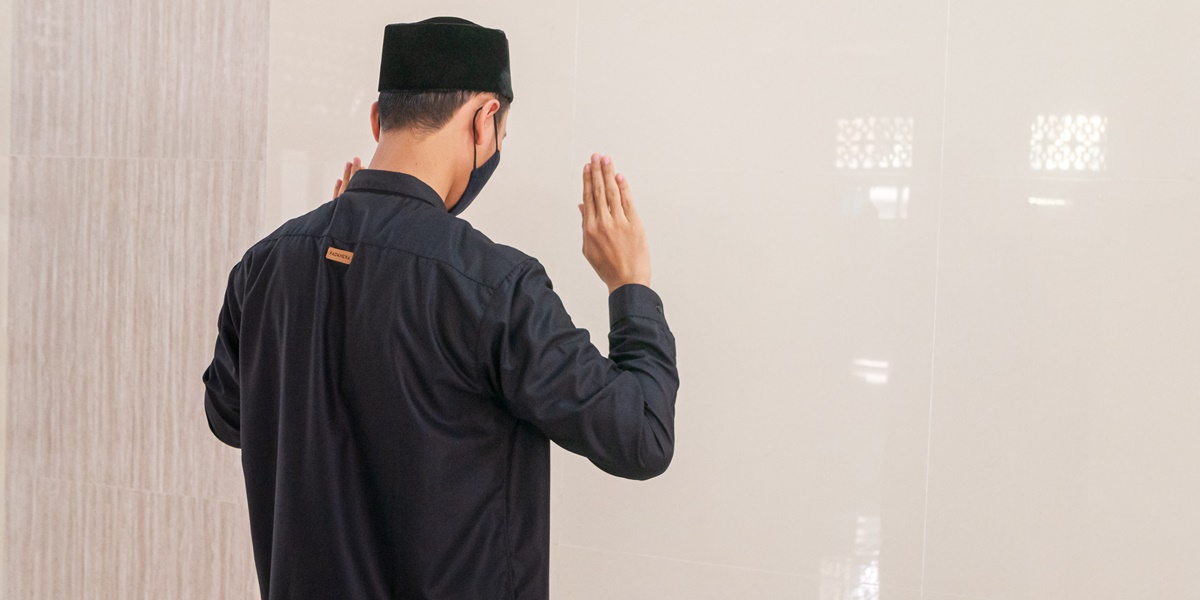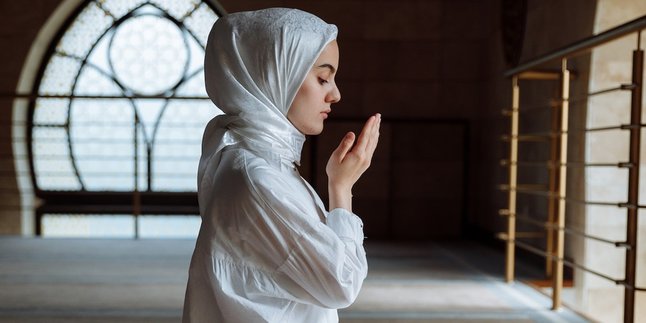Kapanlagi.com - Every night in the month of Ramadan holds unique virtues, including the 15th night which is filled with blessings. This night becomes a special moment for Muslims, where those who perform tarawih prayers will receive prayers from the angels, including the angels supporting the Throne and the guardians of the Heavenly Chair.
The specialness of the 15th night is explained in various Islamic texts, one of which is Durratun Nasihin, which emphasizes that those who worship on this night will receive an abundance of prayers and forgiveness from the angels. This is a golden opportunity for Muslims to attain Allah SWT's forgiveness.
So, what exactly is the virtue of tarawih prayer on this 15th night from an Islamic perspective? What practices are recommended to be performed on this blessed night? Here is the complete explanation, summarized by Kapanlagi.com, Friday (14/3).
1. The Virtue of Tarawih Prayer on the 15th Night According to the Book Durratun Nasihin: Prayed For by the Angels Supporting the Throne and the Guardians of the Sky's Chair
According to the website madarussalampati.sch.id, someone who performs the Tarawih prayer on the 15th night will be prayed for by the angels supporting the Throne and the guardians of the sky's Chair. It is explained in the book Durratun Nasihin that this indicates that worship on this night holds a very high status in the sight of Allah SWT.
It is mentioned in the book:
وَفِى اللَّيْلَةِ الْخَامِسَةَ عَشْرَةَ تُصَلِّ0640عَلَيْهِ الْمَلَائِ0640كَةُ وَحَمَلَةُ الْعَرْشِ وَالْكُرْسِىِّ
Wa fil lailatil khomisata ‘asyarata tusholli ‘alaihil mala-ikatu wa hamalatul ‘arsyi wal kursiyyi.
The meaning is: “On the fifteenth night, the angels, the angels supporting the Throne, and the angels guarding the sky's Chair will ask for forgiveness for him.”
This virtue provides an opportunity for Muslims to receive mercy and forgiveness from Allah SWT. By performing the Tarawih prayer on this night, a Muslim not only gains multiplied rewards but also the prayers of the noble angels.
2. Great Wisdom Behind Tarawih on the 15th Night
The Tarawih on the 15th night is not just about rewards, but also about deep spiritual meaning. There are several wisdoms that can be drawn from this worship:
- The Prayers of Angels Angels are beings close to Allah SWT, and their prayers are answered. When they ask for forgiveness for someone, it is a sign that Allah loves the servant who is earnest in their worship.
- Great Opportunity for Forgiveness Every human certainly has sins, whether they are aware of them or not. By performing Tarawih on the 15th night, one has a great opportunity to have their sins forgiven, especially with the angels' requests for forgiveness.
- Enhancing the Quality of Worship This virtue serves as motivation for Muslims to be more diligent in worship. Tarawih is not just a routine, but a special moment to draw closer to Allah.
3. Recommended Practices on the 15th Night of Ramadan
In addition to performing the tarawih prayer, there are several other practices recommended to be done on the 15th night of Ramadan to gain more blessings:
- Increasing Dhikr and Prayer Remembering Allah through dhikr and prayer can open the doors of His mercy. This also serves as a way to be more focused in worship.
- Reading the Qur'an The nights of Ramadan are the best time to increase reading the Qur'an. Reading with proper recitation and understanding its meaning will have a significant impact on the heart of a Muslim.
- Giving Charity Providing charity to those in need during Ramadan will receive multiplied rewards from Allah SWT. Night Prayer Performing the night prayer can enhance a Muslim's closeness to Allah and strengthen faith and piety.
4. Procedure for Tarawih Prayer on the 15th Night
The Tarawih prayer on the 15th night is performed like on other nights. Here is a brief guide:
- Intention for Tarawih Prayer Every Muslim must intend in their heart to perform the Tarawih prayer sincerely for the sake of Allah SWT.
- Number of Rakaats Tarawih can be performed with either 8 rakaats or 20 rakaats, with an additional 3 rakaats of Witir prayer.
- Reading and Movements Recite Surah Al-Fatihah in every rakaat, accompanied by other short surahs, with movements performed in a calm manner.
- Prayer After Tarawih After the Tarawih prayer, it is recommended to recite the Kamilin prayer and other prayers asking for forgiveness and blessings from Allah.
5. Spiritual Meaning and Motivation for Worship on the 15th Night
The 15th night of Ramadan is the midpoint in the journey of worship during this holy month. It is a moment for every Muslim to evaluate their worship and improve its quality in the remaining days.
- Reflecting on the Golden Opportunity By understanding that angels seek forgiveness for those who perform Tarawih, a Muslim will be more motivated not to miss this worship.
- Getting Closer to Allah Each rakaat of Tarawih prayer is a step closer to Allah's mercy. As one draws nearer, the heart becomes calmer and the soul becomes purer.
- Preparing for the Last 10 Days of Ramadan As we enter the 15th night, Muslims should increasingly prepare to welcome the virtues of the last 10 nights of Ramadan, during which lies Laylat al-Qadr, better than a thousand months.
6. FAQ
1. What is the significance of the tarawih prayer on the 15th night?
Those who perform the tarawih prayer on the 15th night are prayed for by the angels, including the angels who support the Throne and the guardians of the heavenly Seat.
2. Why is the tarawih prayer on the 15th night so special?
This night is special because the angels seek forgiveness for those who worship sincerely.
3. What other practices are recommended besides the tarawih prayer?
In addition to tarawih, it is recommended to engage in dhikr, read the Quran, give charity, and perform the tahajjud prayer.
4. How should the tarawih prayer be performed?
The tarawih prayer can be performed in 8 or 20 rak'ahs, concluded with 3 rak'ahs of witir, and it is recommended to recite the kamilin prayer afterwards.
5. Does the tarawih prayer have to be performed in congregation?
The tarawih prayer can be performed in congregation or individually at home, depending on one's circumstances and abilities.
(kpl/rmt)
Disclaimer: This translation from Bahasa Indonesia to English has been generated by Artificial Intelligence.












